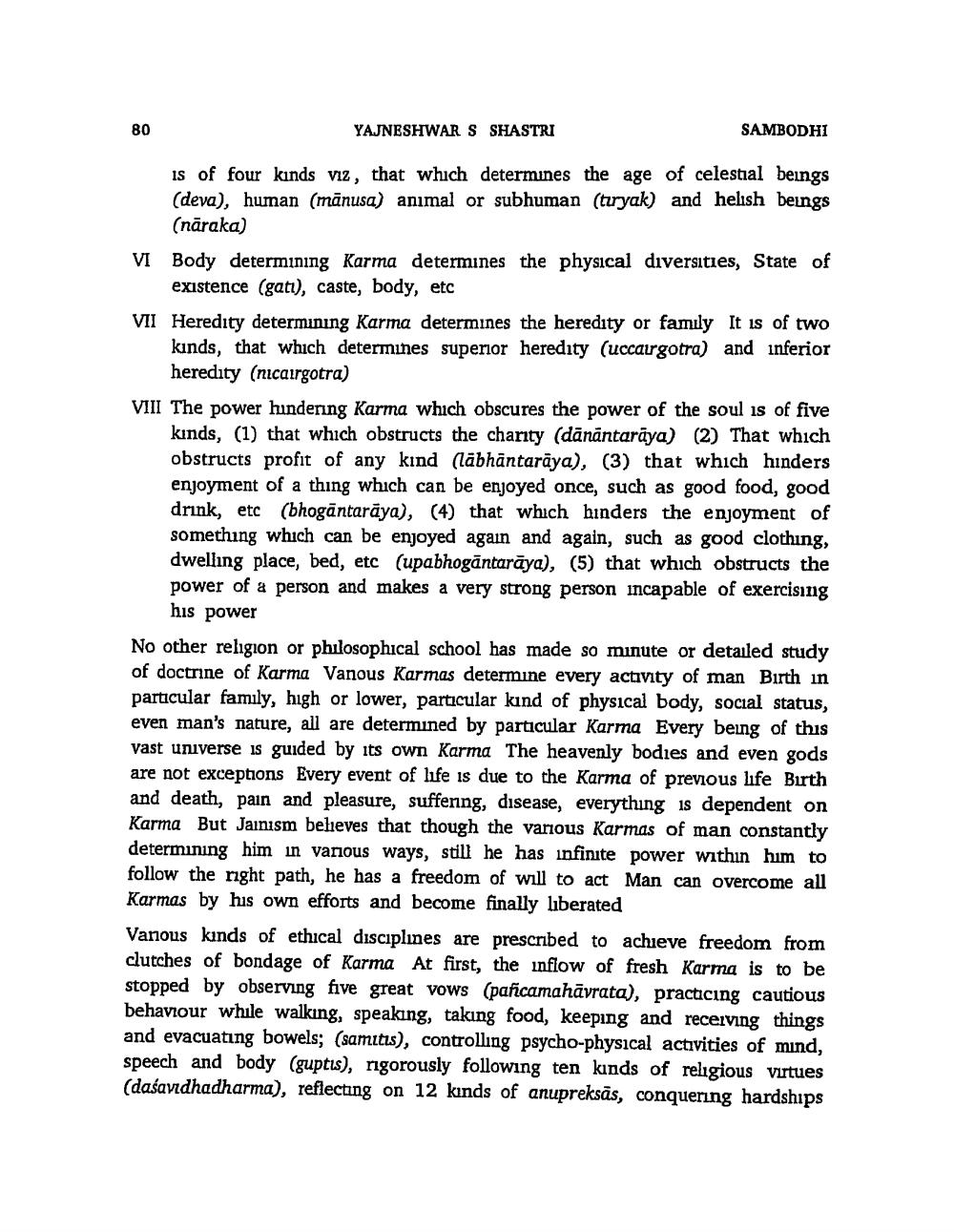________________
80
YAJNESHWAR S SHASTRI
SAMBODHI
is of four kinds Viz, that which determines the age of celestial beings (deva), human (mānusa) animal or subhuman (turyak) and helish beings
(nāraka) VI Body determining Karma determines the physical diversities, State of
existence (gati), caste, body, etc VII Heredity determining Karma determines the heredity or family It is of two
kinds, that which determines superior heredity (uccaugotra) and inferior
heredity (nicairgotra) VIII The power hindering Karma which obscures the power of the soul is of five
kinds, (1) that which obstructs the charity (dānäntarāya) (2) That which obstructs profit of any kind (läbhäntarāya), (3) that which hinders enjoyment of a thing which can be enjoyed once, such as good food, good drink, etc (bhogāntarāya), (4) that which hinders the enjoyment of something which can be enjoyed again and again, such as good clothing, dwelling place, bed, etc (upabhogāntarāya), (5) that which obstructs the power of a person and makes a very strong person incapable of exercising
his power No other religion or philosophical school has made so minute or detailed study of doctrine of Karma Vanous Karmas determine every activity of man Birth in particular family, high or lower, particular kind of physical body, social status, even man's nature, all are determined by particular Karma Every being of this vast universe is guided by its own Karma The heavenly bodies and even gods are not exceptions Every event of life is due to the Karma of previous life Birth and death, pain and pleasure, sufferng, disease, everything is dependent on Karma But Jainism believes that though the various Karmas of man constantly determining him in various ways, still he has infinite power within him to follow the right path, he has a freedom of will to act Man can overcome all Karmas by his own efforts and become finally liberated
Vanous kinds of ethical disciplines are prescribed to achieve freedom from clutches of bondage of Karma At first, the inflow of fresh Karma is to be stopped by observing five great vows (pañicamahāvrata), practicing cautious behaviour while walking, speaking, taking food, keeping and receiving things and evacuating bowels; (samitis), controlling psycho-physical activities of mind, speech and body (guptis), ngorously following ten kinds of religious virtues (daśavidhadharma), reflecting on 12 kinds of anupreksās, conquering hardships




